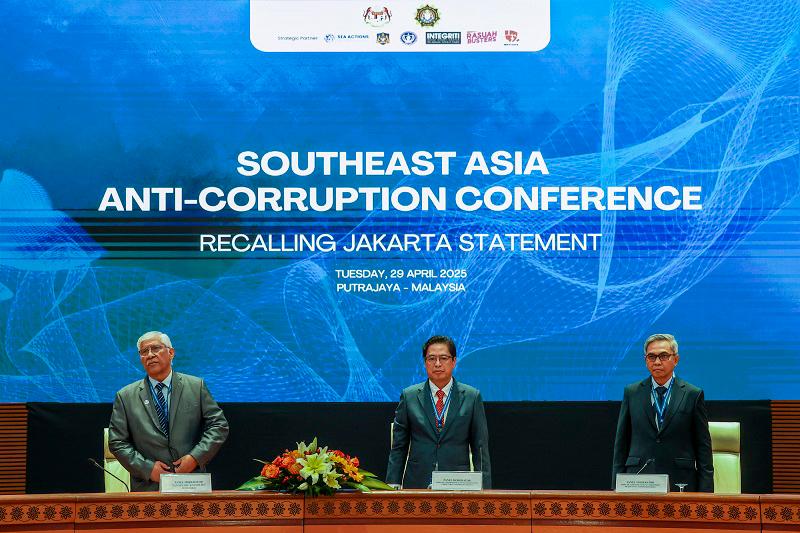PUTRAJAYA: Malaysian Anti-Corruption Commission (MACC) chief commissioner Tan Sri Azam Baki said it was not enough for anti-corruption bodies to be free from interference if they were not worthy of the people’s confidence.
He said Malaysia’s experience showed that institutional independence must go hand in hand with strong oversight and public accountability.
Azam also said that Malaysia’s adoption of Article 36 of the United Nations Convention against Corruption (UNCAC), which calls for independent anti-corruption bodies, was guided by the Jakarta Statement on Principles for Anti-Corruption Agencies.
“At MACC, we have embraced these principles not only in form but in substance. Our framework of five independent oversight committees ensures that MACC remains answerable to the public while protecting our operational independence,” he said in his speech at the Southeast Asia Anti-Corruption Conference: Recalling Jakarta Statement here today.
Also present were Indonesia Corruption Eradication Commission (KPK) chief commissioner Setyo Budianto and representatives from Austria, Brunei, Cambodia, Indonesia, Laos, Myanmar, Singapore, Timor Leste, Mongolia, and Hong Kong.
Azam also called on governments to guarantee institutional autonomy, civil society to serve as partners in accountability, and the private sector to uphold ethical practices.
“This conference is not merely an academic exercise, it is a call for collective action; for governments to guarantee institutional autonomy free from political interference; for civil society to serve as vigilant partners in accountability; for the private sector to uphold ethical practices and reject corruption; and for regional bodies to build resilient frameworks for collaboration and knowledge-sharing,” he stressed.
Azam emphasised that the Jakarta Statement was not just a set of ideals but a roadmap for action, and anti-corruption efforts must be institutionalised, professionalised, and shielded from politicisation to achieve lasting success.
He said MACC was committed to advancing legislative reforms to strengthen institutional safeguards, capacity-building initiatives to equip officers with future-ready skills, and enhanced regional and international cooperation to dismantle corruption networks.
He also said the MACC will adopt digital innovation, including artificial intelligence and blockchain technologies, to uncover hidden financial crimes.
Azam added that the MACC would also continue to uphold the spirit of Malaysia MADANI, embedding integrity, accountability, and social justice at the heart of governance.









